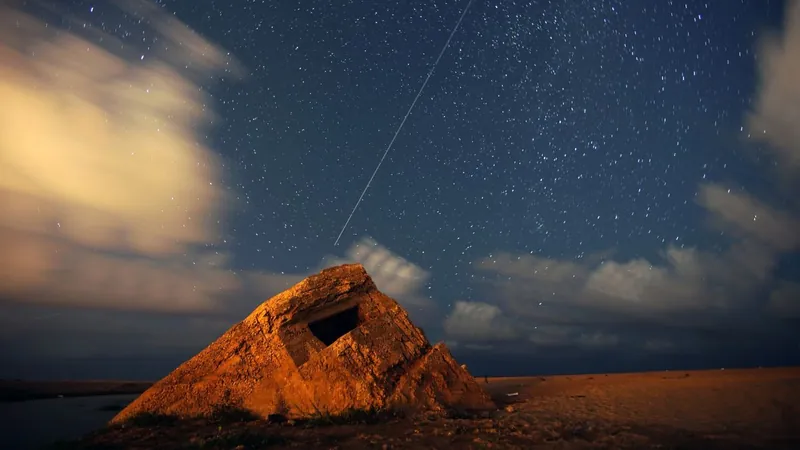
Don't Miss the Spectacular Leonid Meteor Shower This Week: What You Need to Know!
2024-11-12
Author: Benjamin
The Unforgettable Leonid Meteor Shower
The Leonid meteor shower is set to dazzle stargazers across the United States this week, with the peak expected just after midnight EST on November 17-18. Under ideal conditions, you could witness up to 15 mesmerizing "shooting stars" per hour lighting up the night sky!
What Causes the Showers?
This annual celestial phenomenon is more than just a pretty sight; it has the potential to erupt into rare "meteor storms," where you can see over 1,000 meteors per hour! These stunning showers are caused by debris from Comet 55P/Tempel-Tuttle, which orbits the sun every 33 years. This year's peak could be particularly noteworthy, but prepare for a slight challenge: a waning gibbous moon, nearly 94% illuminated, will compete with the meteors for your attention. Its bright light may obscure fainter meteors, making it difficult to fully enjoy this spectacular cosmic event—especially if you're hoping to escape light pollution by heading to a darker locale.
Historical Context
Although we aren't likely to witness a meteor storm this year, history has shown us that incredible displays can occur unpredictably. Instances from 1833, 1866, 1966, and even recent years like 1999, 2001, and 2002 have left skywatchers in awe when Earth passed through dense debris fields. The next nearest encounter with Comet 55P/Tempel-Tuttle will be in 2031—mark your calendars!
Understanding the Leonids
For those curious about the celestial mechanics, the Leonids derive their name from the constellation Leo. If you trace a shooting star back to its origin point in the sky, it will lead you to Leo, confirming that you’ve just witnessed a Leonid meteor. However, keep your eyes peeled; these shooting stars can appear anywhere across the night expanse, so it's best to take in the entire sky to maximize your viewing experience.
Get Ready for the Show!
With a touch of luck and a clear sky, this week's Leonid meteor shower promises to be a breathtaking showcase of nature's beauty. Get ready to grab your blankets, look up, and enjoy this cosmic ballet!









 Brasil (PT)
Brasil (PT)
 Canada (EN)
Canada (EN)
 Chile (ES)
Chile (ES)
 España (ES)
España (ES)
 France (FR)
France (FR)
 Hong Kong (EN)
Hong Kong (EN)
 Italia (IT)
Italia (IT)
 日本 (JA)
日本 (JA)
 Magyarország (HU)
Magyarország (HU)
 Norge (NO)
Norge (NO)
 Polska (PL)
Polska (PL)
 Schweiz (DE)
Schweiz (DE)
 Singapore (EN)
Singapore (EN)
 Sverige (SV)
Sverige (SV)
 Suomi (FI)
Suomi (FI)
 Türkiye (TR)
Türkiye (TR)